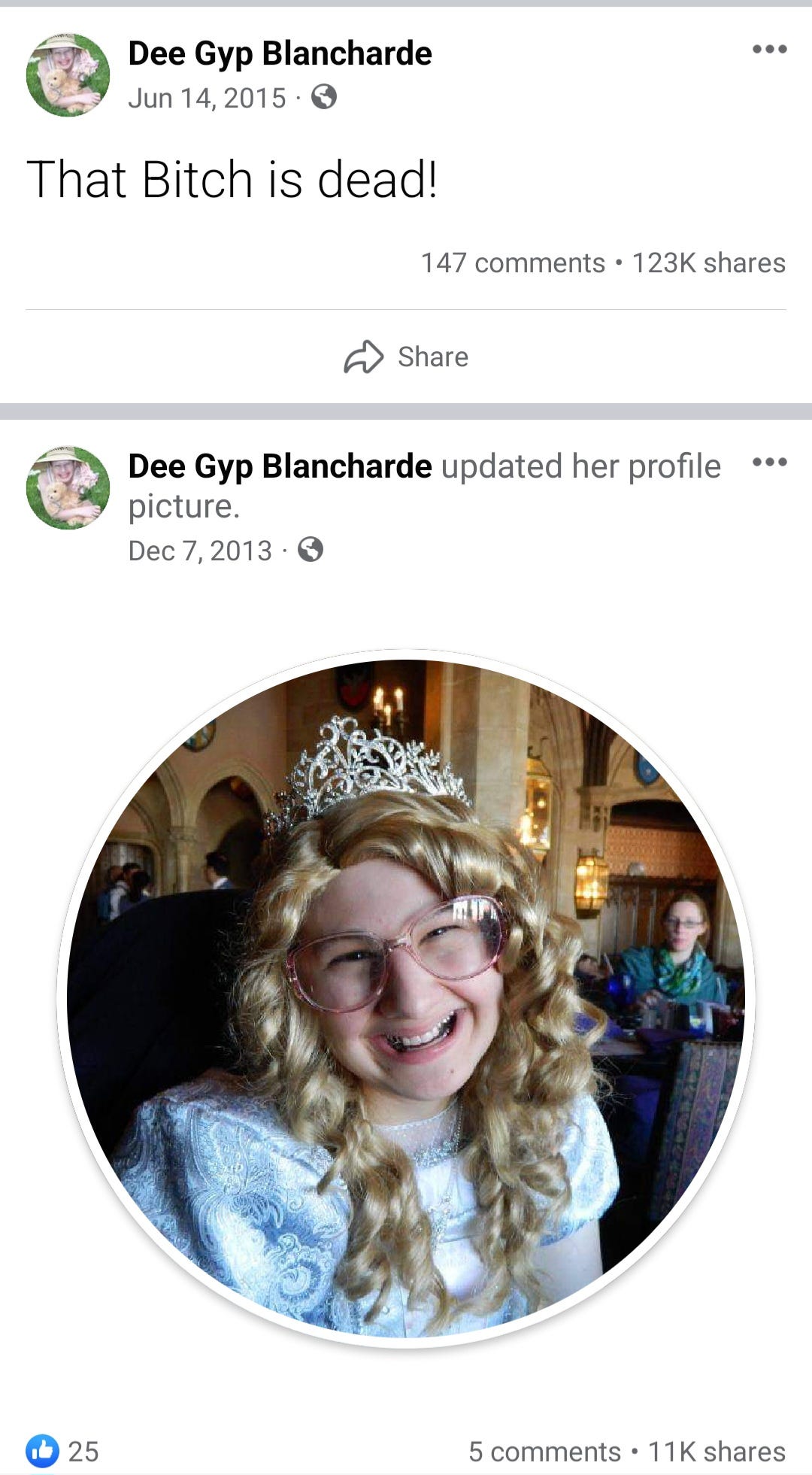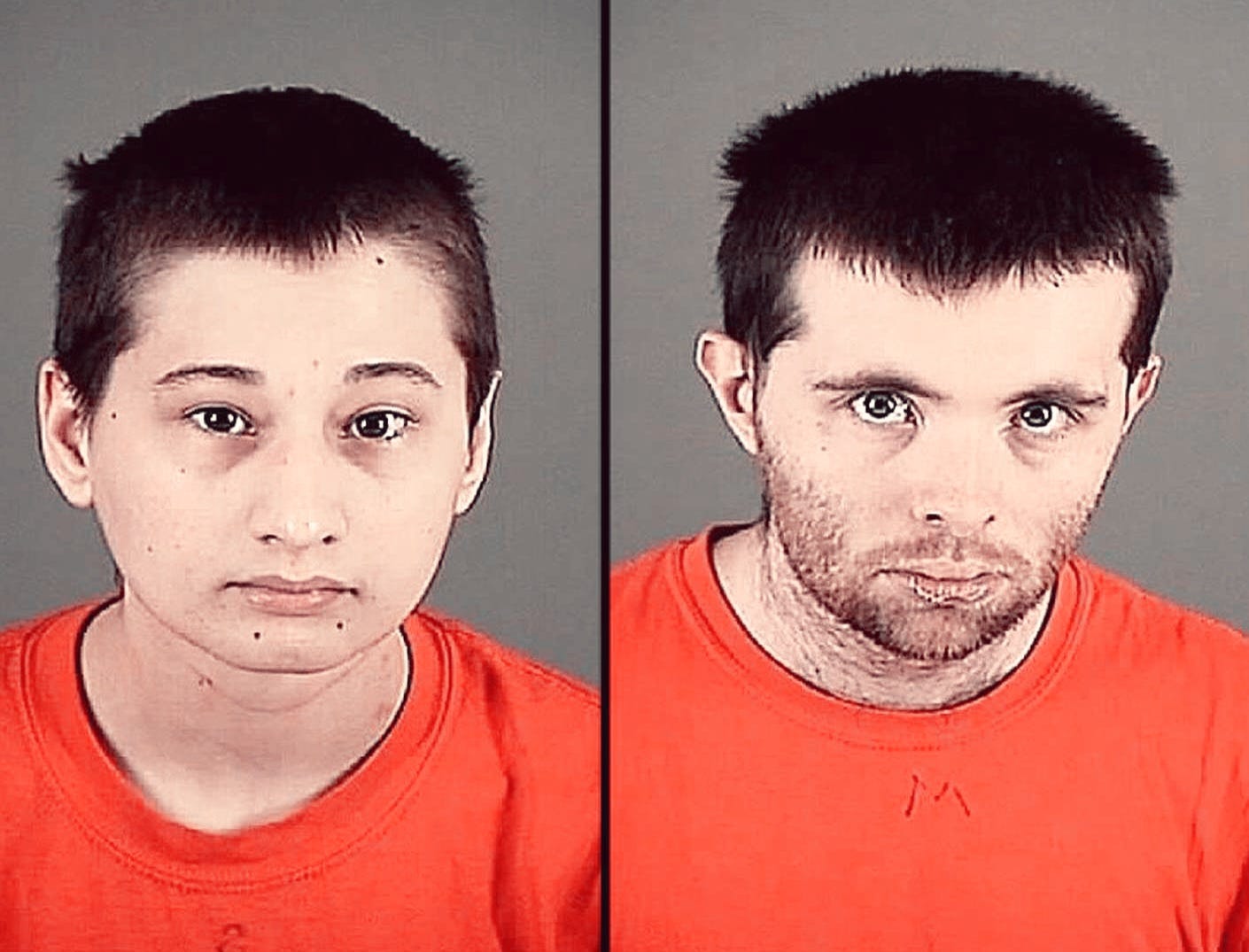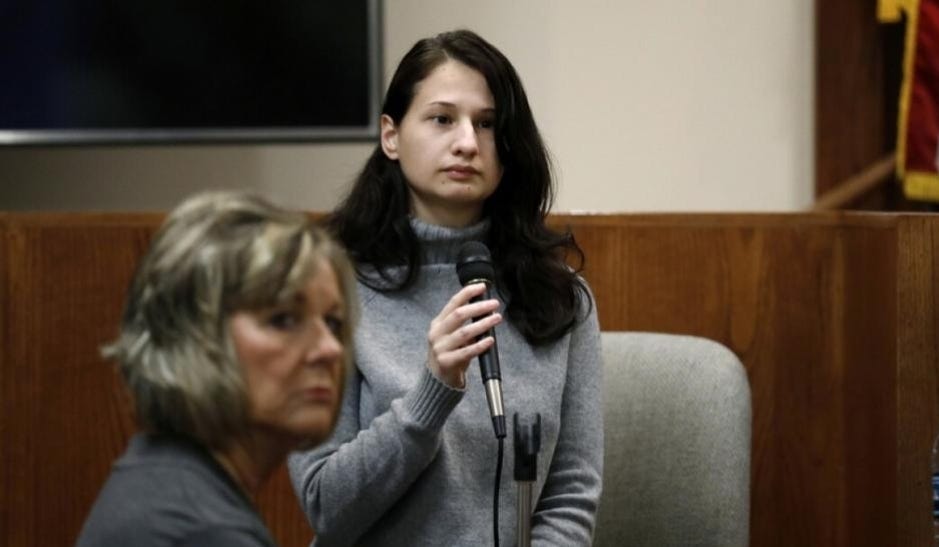Gypsy Rose Blanchard's Survival & Questionable Release
Has Gypsy Rose Blanchard Earned Her Freedom, or Simply Echoed Her Mother's Art of Manipulation?
Chillicothe, MO - In a story that's shaken the very foundations of our understanding of maternal bonds and medical ethics, Gypsy Rose Blanchard, now 32, has emerged from the shadows of incarceration into the light of parole.
Convicted in 2016 for her role in the murder of her mother, Dee Dee Blanchard, Gypsy Rose's case ripped open a Pandora's box of deception, abuse, and a rare psychological condition known as Munchausen syndrome by proxy.
Master of Deception
Gypsy's life, one might argue, was never her own.
From a young age, Dee Dee Blanchard, painted a picture of her daughter as a perennially ill child.
Diagnoses ranged from muscular dystrophy to epilepsy, and even leukemia.
Yet, these were fabrications, a twisted tale by Dee Dee, believed to have suffered from Munchausen syndrome by proxy - a condition where an individual induces or fabricates illness in another person for attention and sympathy.
This deception led Gypsy to undergo unnecessary medical procedures, including eye surgery and the removal of her salivary glands.
She was confined to a wheelchair, fed through a tube, and medicated for ailments she never had.
Dee Dee's narrative was so convincing that even medical professionals were duped, prescribing treatments for diseases Gypsy never had.
With so much exposure to orchestrated deception, is it inevitable for a child to grow up with the same mastermind manipulation mentality?
A Personal Echo
The Blanchard case, peaking in notoriety around 2016, struck a deeply personal chord for me.
As a parent raising a child with Rett Syndrome, I've navigated a complex medical system, continually advocating and educating doctors about my daughter's condition.
This high-profile case cast a shadow of suspicion, subtly altering how some medical professionals view parents like me – those who are simply fighting for their child's health and well-being.
Armed with my own educational background, I've always been acutely aware of Munchausen syndrome by proxy, making the Blanchard case not just a distant crime story, but a reminder of the delicate balance between advocating for a child's health and the misconceptions that can arise.
Sadly, not all doctors know about every rare disease without leaving the room and doing a Google search for symptoms and possibilities.
But it’s even more unfortunate when their lack of knowledge becomes a lens of suspicion cast onto highly tuned and well educated parents on the subject.
I recall a specific occurrence in 2022, post spinal fusion surgery—an attempt to correct severe scoliosis in my daughter—a surgery we did not want for her, but the doctors deemed it necessary.
The surgery went fine.
However, the medicine they prescribed afterwards caused her to go into anaphylactic shock and suffer 40 plus seizures per day for weeks in a row.
When my wife and I discovered the medicinal link on our own, convincing the arrogant staff thereafter was our toughest battle.
We exercised our parental rights, and refused any further medication in order to save her life as her body could bear no more.
With our daughter on the brink, and only moments into the refusal of further medication, the doctor on call barged into the room with a fierce demeanor, slamming the door open.
He commanded we resume all medications, and told us, “Her seizures are from Rett syndrome,” and added, “You guys are harming her.”
But we knew better.
We saw something the doctors overlooked—reality.
We knew her baseline-three seizures per month, tops.
Not 40 per day.
I specifically replied, “We're not Munchausen parents, so stop treating us like we are.”
As they pressed us to follow their script, their supposed infallible training, we urged them to see the obvious.
We maintained our position, and within a few hours, our daughter improved significantly.
As the doctors reluctantly observed the obvious, she was well enough to go home the following day.
Had we not struck down our own hammer of authority in the face of cookie-cutter protocols, the doctors would have killed our girl, and nearly did so.
So unfortunately, stories like Gypsy Rose Blanchard's are nothing new—they date back further than the term itself.
But they do overshadow innocent reality, placing a veil over the eyes of closed-minded fundamental protocol doctors who are overworked and in a rush to get to their next patient.
A Plot Twist No One Saw Coming
Back to the Gypsy Rose tale.
As Gypsy grew older, the veil of deception began to lift, or perhaps transfer into her own being.
The internet played a pivotal role, offering her a glimpse into a world beyond her mother's control.
It was through a Christian dating website that Gypsy met Nicholas Godejohn.
Their relationship, nurtured in secrecy, eventually led to a sinister plot to end Dee Dee's reign of control and abuse.
First, there was the public post on Facebook about it before anyone knew:
In June of 2015, Godejohn, armed with a knife and fueled by a misguided sense of love and protection, killed Dee Dee Blanchard by stabbing her 17 times in her sleep.
Gypsy, who supplied the weapon and orchestrated the plan, was hiding in the bathroom during the murder.
It was then, shortly after the horrendous act, one of them took the time to update her Facebook, “The Bitch is dead!”
Was Gypsy's involvement simply a product of her mother's teachings?
Had Gypsy Rose manipulated her lover to act in proxy on her behalf, just as her mother did with her?
After the crime was committed, the duo then fled to Wisconsin, only to be arrested shortly after.
Gypsy pled guilty to second-degree murder and was sentenced to 10 years in prison.
Godejohn received a life sentence.
But was he more guilty than Gypsy who orchestrated the entire event?
Moral Ethics
As the dust settles on Gypsy's early release, we stand at a crossroads of moral ethics, scrutinizing the tangled web where survival intersects with the sanctity of life.
Gypsy Rose Blanchard's act of orchestrating her mother's murder casts a stark light on the extremities of human behavior under duress.
Was this heinous act a justified means of escape from years of abuse, or does it remain an inexcusable crime despite the circumstances?
The gravity of taking a family member's life — even under claims of survival — remains a profound ethical quandary.
Gypsy's actions compel us to question the depths of desperation and the thresholds of humanity.
Can murder ever be morally permissible, or are there invariably other avenues to liberation?
This isn't just about Gypsy; it's a universal contemplation of right and wrong when all lines are blurred by suffering and control.
In the aftermath, Gypsy Rose herself has expressed regret and remorse.
She has been quoted saying she wishes things had ended differently, and that if she could turn back time, she would opt for a life without murder.
In an exclusive interview, Gypsy Rose Blanchard expressed remorse for her role in her mother’s death, stating, “She didn’t deserve that.”
She also reflected on her belief at the time that there was no other way to escape her mother’s control and abuse, while acknowledging the pain her actions caused her family
These statements hint at an internal moral reckoning — a confrontation with the weight of her actions and the irreversible decision she made.
They suggest a capacity for change, a glimmer of hope that perhaps she has truly grasped the value of the life taken and the cost of her freedom.
Or perhaps they serve as an echo of her mother's manipulative ways, spilling from the childhood depths of her inner psyche.
Is Gypsy's remorse genuine, or has she, too, become a skilled artisan in the craft of deceit?
It's a heavy moral cross to bear and a question that weighs on the scales of justice and ethics.
As society grapples with these moral dilemmas, Gypsy Rose Blanchard's case will continue to serve as a profound study of the complexities of human psychology and the lengths one might go to for salvation.
Rise from the Questionable Ashes
Today, as Gypsy Rose Blanchard's story takes yet another turn, we should view it with an EchoSpective lens and consider the broader picture.
Released on parole after serving 85 percent of her sentence, she has been freed two years ahead of schedule.
Her physical transformation in prison speaks volumes about her newfound freedom and health.
Once wheelchair-bound and frail under Dee Dee's care, Gypsy now walks unaided, her hair grown out - a stark contrast to the image of a perpetually sick child that her mother had crafted.
But this recent development raises a provocative question: In convincing a parole board of her rehabilitation and readiness for release, has Gypsy Rose Blanchard merely taken yet another leaf out of her mother's playbook of manipulation?
Dee Dee Blanchard was a master of deception, convincing medical professionals of illnesses her daughter never had.
So, we must ask, has Gypsy Rose learned to manipulate the system as skillfully as her mother once did?
Is her early release a testament to genuine rehabilitation, or a reflection of her ability to navigate and influence the system to her advantage?
Gypsy's story, one of resilience, survival, and questioning, has captured the public's imagination, spawning a television series, documentaries, and books.
It's a tale that challenges our perceptions of motherhood, mental health, and the healthcare system.
As she steps into a world vastly different from the one she was imprisoned in, both literally and figuratively, Gypsy carries with her a past that's haunting, enlightening, and uncertain.
Her journey serves as a grim reminder of the complexities of the human psyche and the hidden horrors that can lurk behind a facade of caregiving.
For Gypsy Rose Blanchard, freedom isn't just about walking out of prison.
It's about shedding the chains of a fabricated illness, a controlling mother, and a life lived in the shadows.
But inadvertently, due to the nature of her circumstances, it also comes with questions about how ingrained her mother's influence may have had on her.
As she embarks on this new chapter, her story continues to unfold, a stark reminder of the indomitable spirit of survival and the quest for truth in a world riddled with deception.





